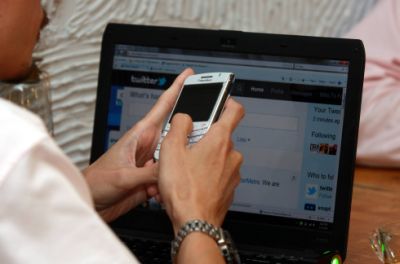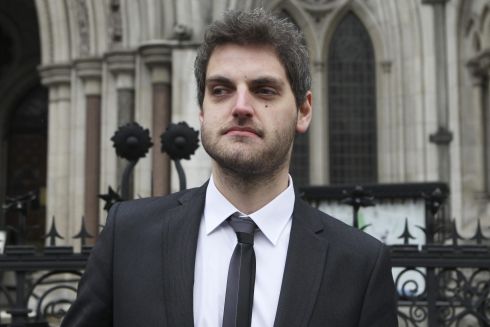Does art imitate life, or is it the other way round? In the Harry Potter movies, Jamie Waylett often found himself in hot water as Vincent Crabbe, one of Draco Malfoy’s sidekicks.
In real life, he’s just found himself in trouble as well after he was found guilty of “violent disorder” earlier this week for his participation in the 2011 London riots.
I don’t want to guess why he got involved in the riots, but I think it’s safe to assume that he didn’t think about the consequences of his actions.
Unfortunately, Jamie would not be the first – and surely not the last either – person to act without thinking. This pretty much brings to light the old adage of thinking before one speaks; these days, we also need to think before we tweet.
In today’s networked environment we exist in, we need to start putting a little bit of thought before we send out a tweet or update our status online.
Many people have been preaching this for years, right from the start of the social network phenomenon. Yet, we are still seeing so many people getting into trouble for the messages they post online.
There are many reasons why this happens. One of the most significant reasons is that we often forget that social networking sites are text-based, and as such, it is hard to attach emotion to our posts (and using emoticons don’t really work!).
Jokes don’t always translate well in text format, and neither does sarcasm. In 2010, British accountant Paul Chambers sent a tweet, which read: “C***! Robin Hood airport is closed. You’ve got a week and a bit to get your s*** together otherwise I’m blowing the airport sky high”.
He claimed to have sent that tweet as a joke to a friend he was due to fly out to meet, and was worried that heavy snow fall might affect his trip. The courts, which convicted him for being a “menace”, obviously didn’t find it very funny (Chambers filed to appeal the conviction in February).
Jokes aside, things also have a tendency to get lost in translation, especially within different cultural contexts. In January, two British (would-be) tourists were denied entry into the United States because of a tweet sent by one of them that read: “… free to meet this week for a quick gossip/prop before I go destroy America? x”.
Those of us familiar with popular culture terms might understand that “destroy” is slang for “partying like crazy” (ie getting drunk). A US Department of Homeland Security officer instead (reportedly) thought that Leigh Van Bryan was messed up for sending that tweet.
There is also reason to be careful because of defamation laws. Last year, Malaysian theatre practitioner Fahmi Fadzil had to send out 100 apology tweets over three days as part of a defamation settlement.
Then there is just plain silliness. On Monday, British student Liam Stacey was in court to face criminal charges for racist remarks on Twitter.
He allegedly made those remarks after people took offence to his original tweet, mocking English football player Fabrice Muamba (born in Democratic Republic of Congo) who collapsed on the pitch due to cardiac arrest recently.
Closer to home, a youth was detained and questioned by police recently for allegedly sending a threatening tweet related to a minister.
If anything, these examples should make us all think twice before posting anything online. I am not suggesting that we take the fun away from these social networks, but it is important that we realise how easy it is to make mistakes especially when using tools that prides itself in being fast and instantaneous.
Not many people often stop to think about the implications of their online actions. To be a digital citizen is no different from being a citizen of any country – we are still subjected to laws, morals and propriety.
One of the things that advocates of digital culture often speak of is how democratic the Internet is. But a democracy does not simply exist; it is the active participation of its citizens that shapes it.
If we want the right to speak out, we also need to respect the rights of other citizens as well – and yes, even the ones who misunderstand us.
Niki is a MA Digital Culture and Society student at King’s College London. Connect with him online at www.nikicheong.com and www.twitter.com/nikicheong.




Tell us what you think!